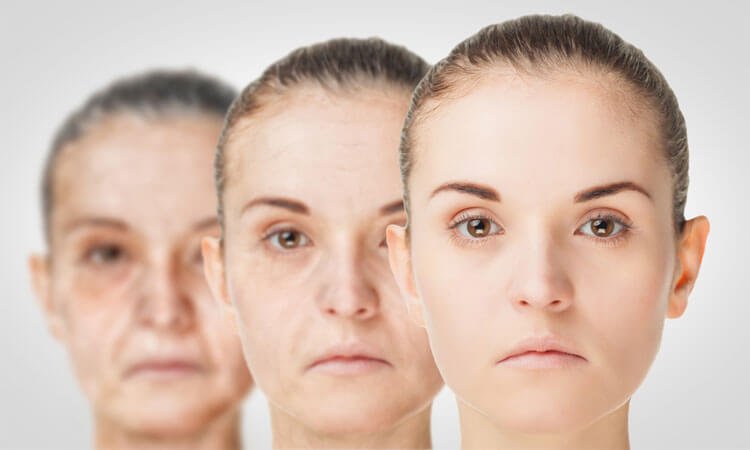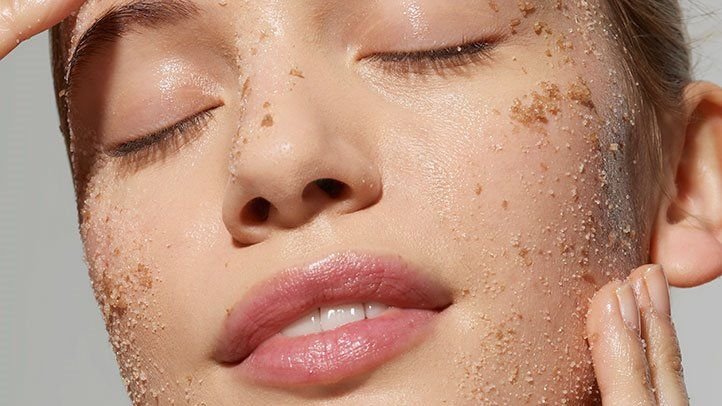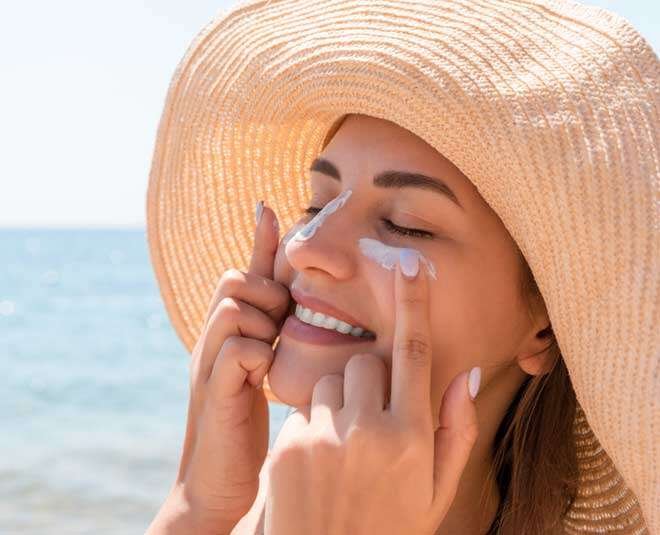
Sunlight is a source of light and essential vitamins as it stimulates vitamin D production helps control some chronic skin diseases such as Psoriasis and causes a sense of well-being. However, excessive sunlight exposure can cause skin damage.

The scorching sun of May is probably kind to none of us as the heatwave strikes. Having too much exposure to direct sunlight can damage your skin in ways that can become an obvious reason for premature aging, sunburn, skin concerns, and of course skin cancers too!
Photoaging-Sun Damage
The sun’s rays can take a toll on your skin. In the short-term, that can mean contending with a scorching sunburn. . The sun prematurely ages the skin. Called photoaging, this can lead to skin cancer.
Dermatologists refer to the damage the sun does to the skin by several names, including photoaging, photodamage, solar damage, or sun damage. It happens when ultraviolet (UV) light hits skin unprotected by sunscreen, causing DNA changes at a cellular level. Because photodamage happens in the deepest layers of the skin—the dermis—it can take years before the damage surfaces and becomes visible.
The sun’s ultraviolet light can cause major damage to the skin. The outer layer of the skin has cells that contain the pigment melanin. Melanin protects skin from the sun’s ultraviolet rays. These can burn the skin and reduce its elasticity, leading to premature aging.
The basic reason for skin being affected the most in the sunlight is those ultraviolet rays that don’t spare the skin in any way. The worst that these rays cause to your skin is skin cancer and apart from that, almost around 90% of skin problems like discoloration, fine lines, dark spots, hyperpigmentation, aging, and scars are caused due to these harmful UV rays.
Symptoms Of Photoaging
Unlike normal, chronological aging, which is dictated by age and genetics, photoaging happens when ultraviolet light from the sun and/or tanning beds permanently damages the skin’s structure. To see the difference between chronological aging and photoaging, compare skin on an area of your body that is not exposed to the sun with the skin on your face.
 Signs of photodamage begin in the teens to early twenties. Symptoms include the following:
Signs of photodamage begin in the teens to early twenties. Symptoms include the following:
- Wrinkling
- Pigmentation changes such as age spots, liver spots (solar lentigines), and freckles
- Loss of skin tone (decreased elasticity)
- Rough, uneven skin texture
- broken capillaries (spider veins), usually around the nose and chest
- Redness and blotchiness
Treatments include: lasers, chemical peels, and topical medications
If exposed to excessive sunlight, consequently resulting in sunburn, one must seek medical assistance instead of self-medicating.
How Can I Protect My Skin In Summers?
Neglecting your skin or doing skincare seldomly can never bring you that sheer glow, texture, and that smoothness to your skin. Taking care of the skin should be a part of your everyday routine. However, protecting your skin from scorching sunlight is something you should always be vigilant about.

When it comes to protecting your skin during summers, the two important key points to always keep in mind include the usage of ample sunscreen regularly even if you don’t have to step out and pay attention to the time of the day.
Sunscreen Is Your Bestfriend!
Understand Your Sunscreen-What is SPF in sunscreen?
SPF stands for sun protection factor. The SPF number tells you how well the product will protect you from UVB, the burning rays of the sun. (Most sunscreens also absorb ultraviolet “A” rays or UVA.) Sunscreens come labeled with a sun protection factor (SPF), such as 15, 30, or 50. The higher the SPF number, the greater the amount of protection. A sunscreen labeled SPF 15 means it will take you 15 times as long to get a sunburn as it would if you had no sunscreen on. A sunscreen labeled SPF 30 means it would take you 30 times as long to burn.

The effectiveness of sunscreens is affected by several factors. A sunscreen’s active ingredients can break down over time, so be sure to check the expiration date on the container. The amount of sunscreen you use and how often you use it to affect your sun protection. Perspiration and time spent in the water can also reduce sunscreen effectiveness.
Dermatologists often emphasize Sunscreen, but why? It is because after you apply a sufficient amount of sunscreen on your face, it works as a barrier on your skin, blocking both the radiations of ultraviolet A and ultraviolet B coming from the sun to your skin.
However, these rays not only target your skin to damage them but give a tough time to the eyes as well. The B category of ultraviolet rays is mostly responsible for sunburns whereas the category A is responsible for wrinkles, sagging skin, and dull-looking skin ty
Both categories of ultraviolet rays are strong enough to damage your skin texture, cause aging, dark spots, sunburns, premature aging, and all skin-related nightmares that a woman can probably think of.
Choose water-resistant sunscreen with SPF of 30 or above it all when you step out.
Stay Protected Keeping The Time In Mind

Avoid stepping out between 10 am – 4 pm as at these hours, the sun rays are at their peak. However, it’s not a compulsion not to step out, yes you can but with all the precautions. Keep your skin and your body hydrated and apply sunscreens and you are all good to go.
Protect Yourself From Sun Damage And Enjoy Summers To The Fullest
Apart from the application of sunscreen, keeping your body and your skin hydrated, and not stepping out during the tough hours of the day, there are some necessary precautions that you must take to protect your skin. These are:
- Carry shades, umbrellas, or seek shade under a tree but don’t come directly in contact with the sun’s rays.
- Choose to wear a hat that covers your head from above and keeps your skin protected from the sun’s rays.
- Help your eyes and wear sunglasses that have UVA and UVB protection in them so that you can protect them.
- You can schedule all of your outdoor activities once the peak hours are over.



